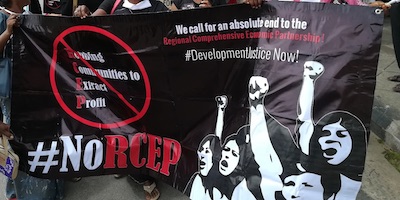
An analysis of the leaked IP chapter proposed for the RCEP shows that Japan and South Korea are proposing intellectual property (IP) provisions referred to as TRIPS-plus, which go far beyond the obligations under the World Trade Organisation’s Agreement on Trade Related Aspects of Intellectual Property Rights (TRIPS).
The proposed provisions seek to extend pharmaceutical corporations’ patent terms beyond the usual 20 years and also would require data exclusivity that limits competition. Such provisions are a cause for great concern among public health groups over their potential adverse impact on access to affordable medicines.
RCEP also treats IP as an investment made by investor corporations, allowing private investment disputes (ISDS) to be raised against the host country whenever there is a threat to their IP. Treating IP as an investment, and subjecting it to treaty arbitration, can have undesirable impacts on the hard-bargained flexibilities in IP laws and on public health safeguards that countries like India have earned over the years.
Further, civil society groups have expressed concern about the copyright protection standards proposed under the RCEP IP Chapter which could stifle creativity and free speech.
The leaked IP chapter also pushes for accession by all RCEP member states to the 1991 Act of the International Convention for the Protection of New Varieties of Plants (UPOV 1991), to which only seven of the RCEP negotiating countries are already member. UPOV 1991 provides monopoly rights to plant breeder rights at the cost of farmers’ rights, making it illegal for farmers to save seeds of protected vartieties.
Data exclusivity provisions in the IP chapter may extend the patent protection periods of agrochemical products as well, putting upward pressure on food prices.
RCEP governments must recall their international, regional and national commitments to respect, protect and fulfill the right to health including the right to access affordable medicines. In their quest for greater economic integration, RCEP negotiating countries must not put the lives and health of millions of people in the Asia-Pacific region at risk.
























